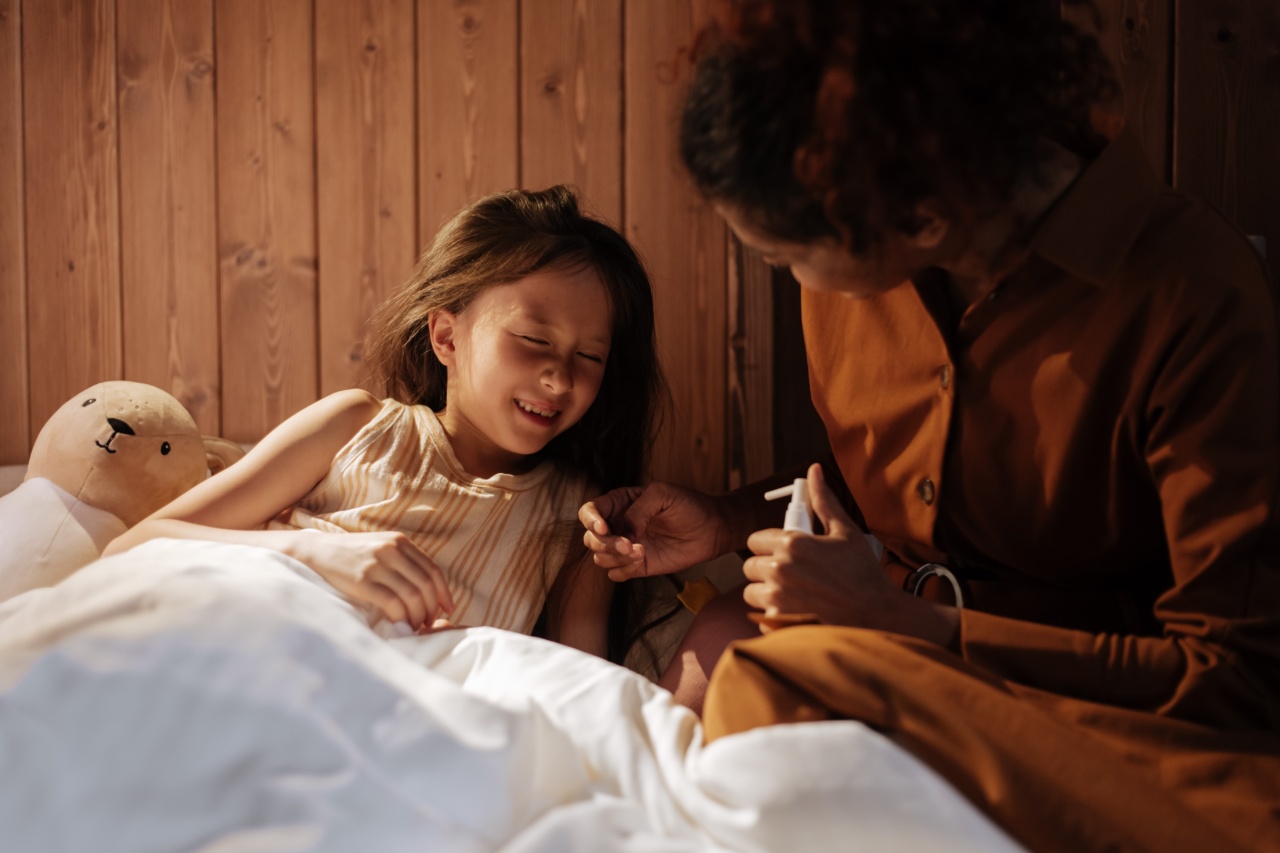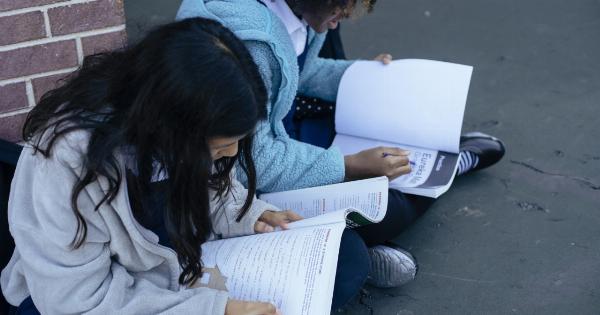Sinusitis is a common condition in children that causes inflammation and swelling in the sinuses. It occurs when the sinus openings become blocked, leading to the accumulation of mucus and impaired drainage.
Caring for a child with sinusitis can be challenging, as they may experience a range of symptoms. Recognizing these symptoms is crucial for early diagnosis and effective treatment. Here are some common signs of sinusitis in children:.
1. Nasal Congestion
Nasal congestion is one of the primary symptoms of sinusitis in children. Your child may complain of a stuffy or blocked nose, making it difficult for them to breathe comfortably.
This congestion occurs due to the increased production of mucus in the sinuses, leading to a feeling of pressure and discomfort.
2. Sinus Pressure
A sensation of pressure or pain in the sinus areas is another symptom of sinusitis. Your child may experience this discomfort around the nose, forehead, or cheeks.
They may complain of a headache or facial pain, which can worsen when bending forward or lying down.
3. Runny Nose
A runny nose with yellow or greenish discharge is a common symptom of sinusitis. The excessive production of mucus as a result of inflammation in the sinuses leads to a persistent runny nose.
This discharge may be thicker and more colored than the typical clear nasal discharge associated with allergies or a common cold.
4. Cough
Coughing is often seen in children with sinusitis. The drainage of mucus from the sinuses into the back of the throat can trigger a cough, especially at night. This cough may be worse when lying down or during physical activities.
It is important to note that sinusitis-related cough is usually not accompanied by wheezing or shortness of breath.
5. Bad Breath
Unpleasant breath odor, also known as halitosis, can be a symptom of sinusitis in children. The stagnant mucus in the sinuses can produce a foul smell, which may become noticeable when your child talks or exhales.
6. Reduced Sense of Smell
Children with sinusitis may also experience a reduced sense of smell or taste. The inflammation in the sinuses can affect the olfactory nerves, leading to a diminished ability to detect scents or flavors.
This can contribute to a decreased appetite or difficulty enjoying food.
7. Fatigue
Chronic sinusitis can cause fatigue and decreased energy levels in children. The constant congestion and discomfort may disrupt their sleep, leading to feelings of tiredness during the day.
They may appear irritable or have difficulty concentrating on tasks.
8. Fever
In some cases, sinusitis can cause a low-grade fever in children.
If your child’s body temperature is above 100.4°F (38°C) and they exhibit other symptoms of sinusitis, it is important to consult a healthcare professional for further evaluation and possible treatment.
9. Ear Pain and Pressure
The inflammation and mucus buildup associated with sinusitis can cause ear pain and pressure in children. The sinuses and ears are connected by narrow channels, and when the sinuses become congested, it can affect the ears.
Your child may complain of earaches or a sensation of fullness in the ears.
10. Dental Pain
Sinusitis can also cause dental pain in children. The upper back teeth are in close proximity to the maxillary sinuses. When these sinuses become inflamed and press against the surrounding areas, your child may experience pain in the upper teeth or jaws.
This pain may worsen when biting or chewing.
Treatment for Sinusitis in Children
Management of sinusitis in children involves both medical interventions and home remedies to alleviate symptoms and promote healing:.
1. Saline Nasal Irrigation
Saline nasal irrigation can help clear the nasal passages and reduce congestion in children with sinusitis. Use a saline solution specifically designed for nasal rinsing or make one at home using sterile water and salt.
Gently flush the saline solution through your child’s nose using a neti pot or a bulb syringe, ensuring proper instructions and precautions are followed.
2. Steam Inhalation
Steam inhalation can help relieve nasal congestion and promote sinus drainage. Have your child sit in the bathroom with a warm shower running or use a humidifier to add moisture to the air.
The steam will help soothe the irritated sinuses and facilitate mucus clearance.
3. Adequate Hydration
Encourage your child to drink plenty of fluids to help thin the mucus and prevent dehydration. Offer water, clear soups, and warm herbal teas. Avoid sugary beverages as they can worsen congestion and inflammation.
4. Pain and Fever Relief
If your child is experiencing pain, discomfort, or fever associated with sinusitis, consult a healthcare professional for appropriate over-the-counter pain relievers suitable for their age.
Acetaminophen or ibuprofen can help alleviate symptoms, but always follow the recommended dosage and consult a healthcare professional if symptoms worsen or persist.
5. Nasal Decongestants
For severe nasal congestion, your child’s healthcare provider may recommend short-term use of nasal decongestant sprays or drops.
These medications can provide temporary relief by constricting blood vessels in the nasal passages, reducing inflammation and opening blocked sinuses. However, prolonged use of decongestant sprays can lead to rebound congestion, so follow the healthcare provider’s instructions carefully.
6. Antibiotics
In cases of bacterial sinusitis, your child’s healthcare provider may prescribe antibiotics to clear the infection.
It is crucial to complete the full course of antibiotics as prescribed, even if your child’s symptoms improve before completion.
7. Allergy Management
If your child has allergies that contribute to their sinusitis, it is essential to manage their allergies as well. Identifying and avoiding allergens that trigger symptoms can help prevent recurrent sinusitis episodes.
Your child’s healthcare provider may recommend allergy testing and prescribe antihistamines or other allergy medications.
8. Rest and Sleep
Ensure your child gets plenty of rest and sleep to aid in their recovery. Adequate rest can boost the immune system and help the body fight off infections. Create a comfortable and quiet sleeping environment to promote uninterrupted sleep.
9. Healthy Diet
Provide a well-balanced diet rich in fruits, vegetables, whole grains, and lean proteins to support your child’s overall health and immune system.
Foods high in vitamin C, such as citrus fruits, strawberries, and bell peppers, can help boost the immune response and aid in healing.
10. Follow-up with Healthcare Provider
It is important to schedule a follow-up appointment with your child’s healthcare provider to monitor their progress and ensure appropriate management of sinusitis.
If symptoms worsen or persist despite home care measures, further evaluation or treatment may be necessary.































